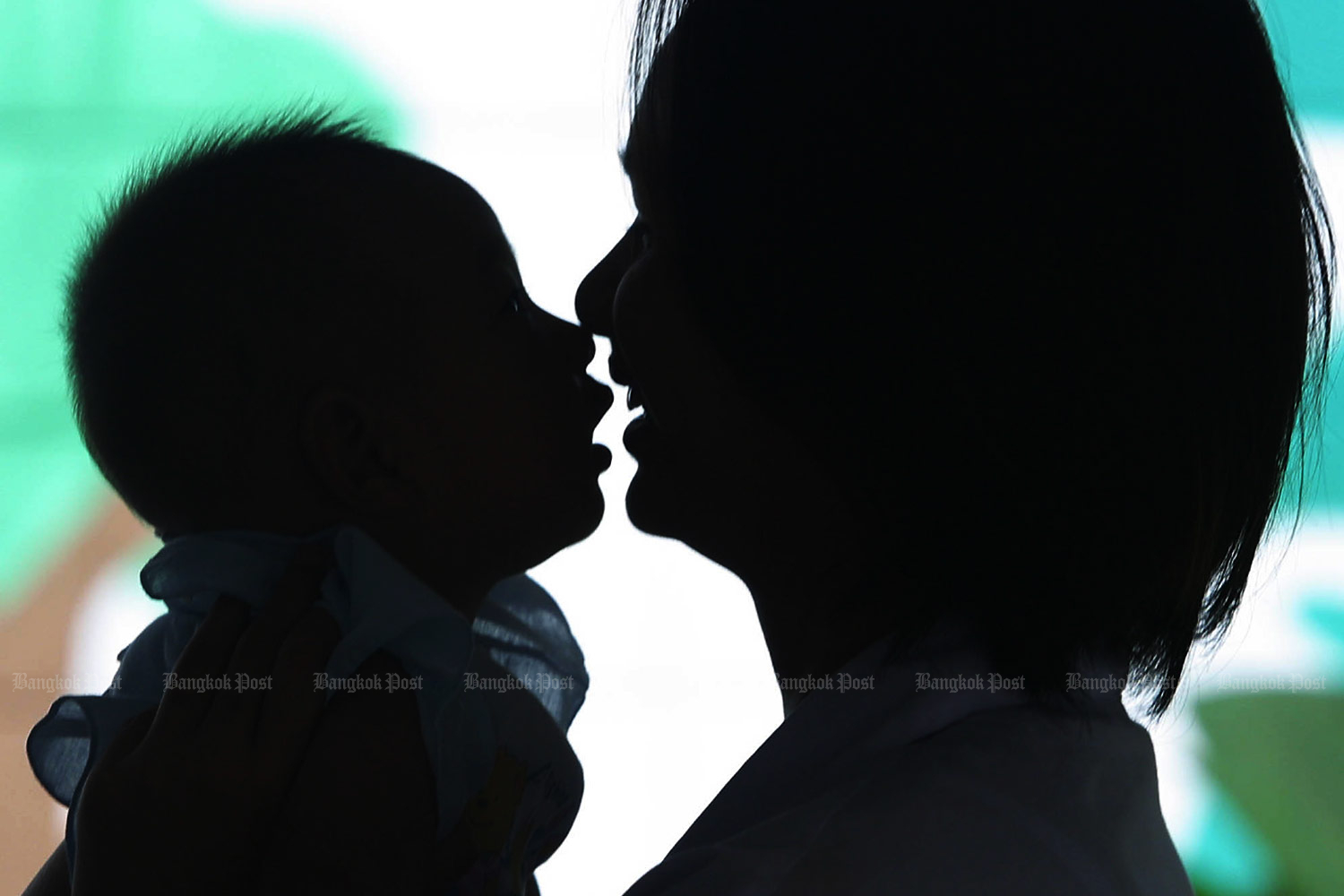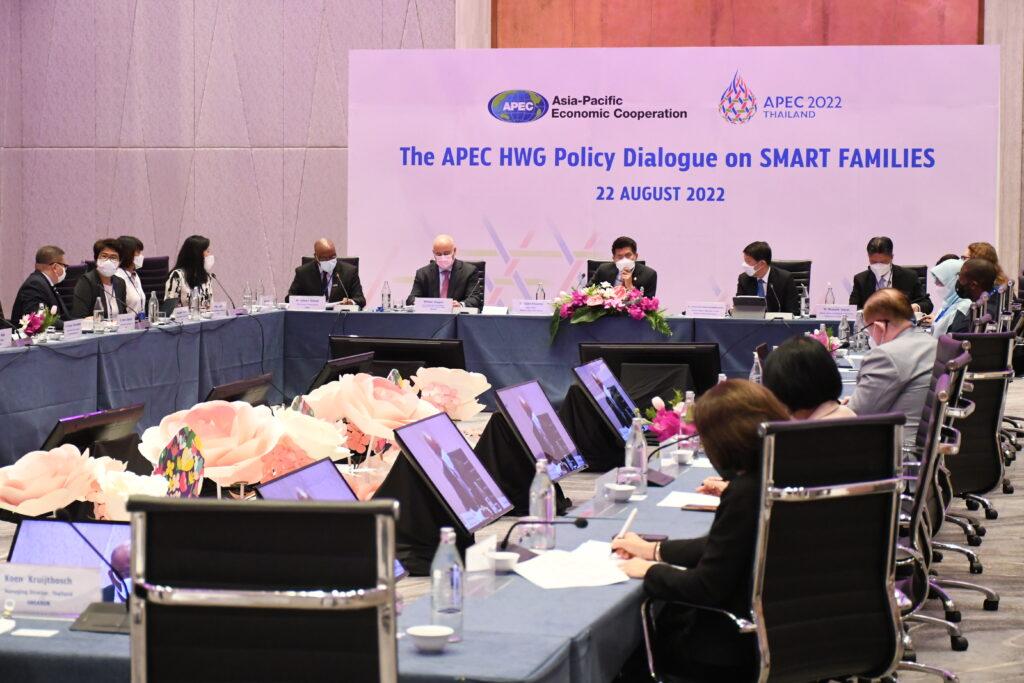
The Asia Pacific Economic Cooperation (Apec) Health Week meeting began on Monday with a "Smart Families" policy discussion on how to deal with low birth rates and their impact on labour and economies.
The meeting, being held at the Millennium Hilton Bangkok Hotel until Friday, was on Monday presided over by Deputy Public Health Minister, Satit Pitutecha, who gave the policy dialogue on "Smart Families".
Mr Satit said that 17 of the 21 Apec members' economies are facing demographic problems, with low fertility rates causing population declines which will affect their economies in the long run.
"Thailand is also facing this problem. Presently, it has a population of around 66 million and we have already become an aged society, and we will soon become a super-aged society," he said.
In 2020, Thailand had a fertility rate of 1.24, which is lower than the population replacement level of around 1.6. In 2017, there were about 700,000 newborns in Thailand. In 2021, the number of births decreased to 540,000, Mr Satit said.

"The number of births is gradually decreasing and now it is close to the number of deaths. If we do nothing, the birth rate will be less than the death rate, and Thailand's population may be halved.
"The working-age population will decrease, and they will have the added burden of taking care of society, children and the elderly.
"It is estimated that in the next 40 years, those of working age will decrease by 15 million, and the elderly will increase by 12 million. This change will affect the economy, society and finances of the country," he said.
Mr Satit said this week's meeting was an opportunity for Apec economies to exchange information and make a commitment to solving this problem with public health officials, family planning specialists, civil society, as well as educational, institutions, international organisations, and the private sectors of each Apec member state.
Thailand also presented its Smart Families project at the session.
Dr Suwannachai Wattanayingcharoenchai, Director-General of the Department of Health, said the Ministry of Public Health is promoting the project under the 2nd National Reproductive Health Development Policy and Strategy (2017-2026).
"The aim is to promote childbirth and for parents to provide childcare for optimum growth and full potential so these children can be a driving force behind further development for the country in the future," he said.







